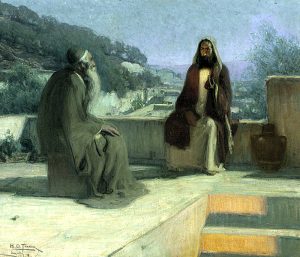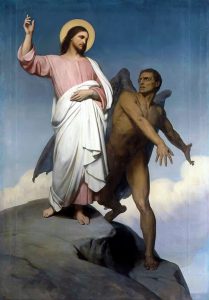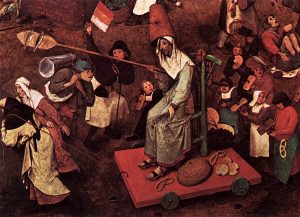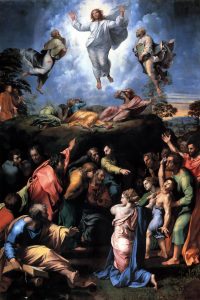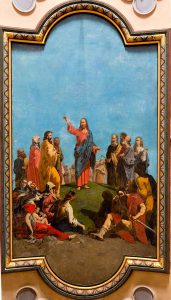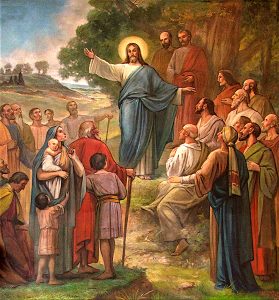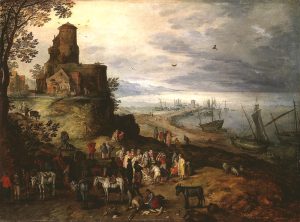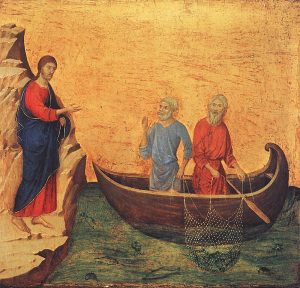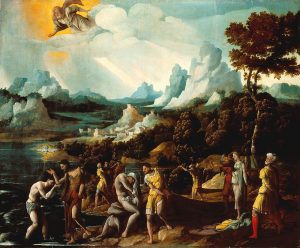Illuminations on the Lectionary readings for March 8, 2026 (Lent 3A)

Christ and the Woman of Samaria at the Well (c.1640-c.1641), oil painting on canvas by Giovanni Francesco Barbieri, known as Guercino (1591-1666). Thyssen-Bornemisza Museum, Madrid. (Click image to enlarge.)
First Reading: Exodus 17:1-7
Sunday’s readings speak about thirst. We hear about the thirsty Israelites following Moses in the desert, and we look on as Jesus stops for water and rest in a Samaritan town and has an intriguing conversation with a local woman. When we face such basic needs as hunger and thirst, it’s all too easy for us to forget to be thankful for the blessings we have already received. Our first reading from Exodus finds the people grateful that God has provided manna to ease their hunger. But now they are angry because they still have no water. They complain that they were better off in slavery in Egypt than dying in the desert. Moses is just about out of patience with them, but God provides a miracle to quench their thirst.
Psalm: Psalm 95
The 95th Psalm begins with the joyful hymn of praise that we also know as the Venite, a familiar reading in Morning Prayer, which begins “Come, let us sing to the Lord.” Its grateful tone changes key in the eighth verse, though, when the Psalmist recalls the events that we heard in the Exodus reading. Because the thirsty, angry people turned their hearts from God and put God to the test, he imagines, these ungrateful actions drove God to “loathe” them and leave them to wander for 40 years in the desert.
Second Reading: Romans 5:1-11
Even though we all sin, Paul writes to the people of the church in Rome, we are nevertheless justified through faith and saved through Jesus’s death on the cross. This congregation has known suffering. Its Jewish Christian members were forced into exile and had only recently returned; now the faith of the entire congregation puts them all at risk. Even so, Paul assures them, their suffering gives them the opportunity to learn endurance and build their character through hope in the love that God pours into their hearts through the Spirit.
Gospel: John 4:5-42
Jesus was tired and thirsty after a long journey. Returning from Jerusalem to Galilee (a journey that we hear about only in John’s Gospel), he decided to pass through the country of the Samaritans, even though they were not on good terms with their Jewish neighbors. Stopping at a village well, Jesus struck up a conversation with a Samaritan woman, asking her for a drink. These actions surprised her, as Jewish men of those times weren’t likely to engage with Samaritans, much less Samaritan women. Then his conversation surprised her even more, as he promised her the unending “living water” of God’s spirit, foretold an end to the differences between their people, and declared himself the Messiah.

